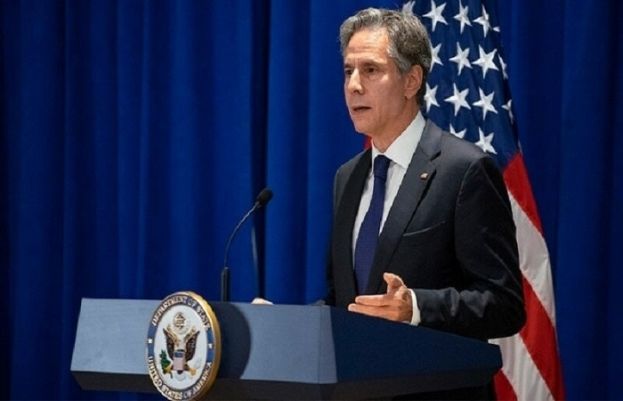
“Where we can, it is far preferable to get countries to voluntarily not engage in these practices, and that’s where our diplomacy is focused,” Mr Blinken said at one of his several congressional hearings in Washington this week.
Democratic senators urged Secretary Blinken at these hearings to put more pressure on India for continuing to do business with Russia despite its invasion of Ukraine.
“They go buy oil from Russia. They buy the S-400 [anti-missile system]. They abstain at the United Nations [on votes criticising Russia],” said Senator Bob Menendez, who heads the Senate Committee on Foreign Relations.
“But they are a member of the Quad,” he said, referring to a US-led alliance of like-minded nations for containing China’s influence in the Indian-Pacific region. “So, at some point messages that we send globally here are inconsistent. When we say we’re ‘troubled’ and ‘disappointed,’ that doesn’t cut it.”
Secretary Blinken, who was defending the State Department’s fiscal 2023 budget request, acknowledged this ‘uncomfortable reality’ but also urged lawmakers to see the broader picture.
“We’re at a very important strategic moment as various countries … are possibly reconsidering some of their other relationships, including with Russia,” he said in his first of four appearances in Congress this week. “As a strategic proposition, I think it’s very much in our interests to encourage that and work with that and see what we can do to … take advantage of other strategic opportunities that may present themselves as a result of Russia’s aggression.”
In another hearing at a Senate Appropriations Subcommittee, Secretary Blinken told the lawmakers that India’s relationship with Russia goes back decades.
“Russia, for India, was out of necessity a partner of choice when we were not in a position to be a partner,” he said in response to a question from Senator William Hagerty.
“Now, we are investing in that effort. I think there is a growing strategic convergence between the United States and India,” Mr Blinken said. “And of course, China is a big part of that,” as Beijing’s growing influence in the region brings India closer to the United States.
Mr Blinken said US President Joe Biden had spent “a lot of time directly engaging with Prime Minister Modi and India’s leadership”.
At the Foreign Relations Committee, Senator Menendez criticised the State Department for not forcefully calling out India’s decision to increase oil purchases from Moscow just as other US allies are curtail their own energy imports from Russia.
Senators said they could suggest sanctioning India if it didn’t stop buying Russian defence equipment, on which India has long relied.
The US media, while reporting their remarks, noted that before the Russian invasion of Ukraine, US lawmakers were more open to giving India a waiver for purchasing a Russian anti-missile system.
The US media reported that since the Russian invasion, India has imported more than double the amount of crude oil from Russia that it did in all of 2021.
“Why aren’t we applying secondary sanctions against countries … that are increasing their imports from Russian commodities?” asked Senator Chris Van Hollen, a Maryland Democrat. “There are countries that are taking advantage of discounted Russian oil prices … which only helps (President) Putin.”
Secretary Blinken said Washington has “engaged with some countries” that are taking advantage of Russia’s discounted commodity exports.” But applying individual sanctions was inadvisable, he added.

Post a Comment